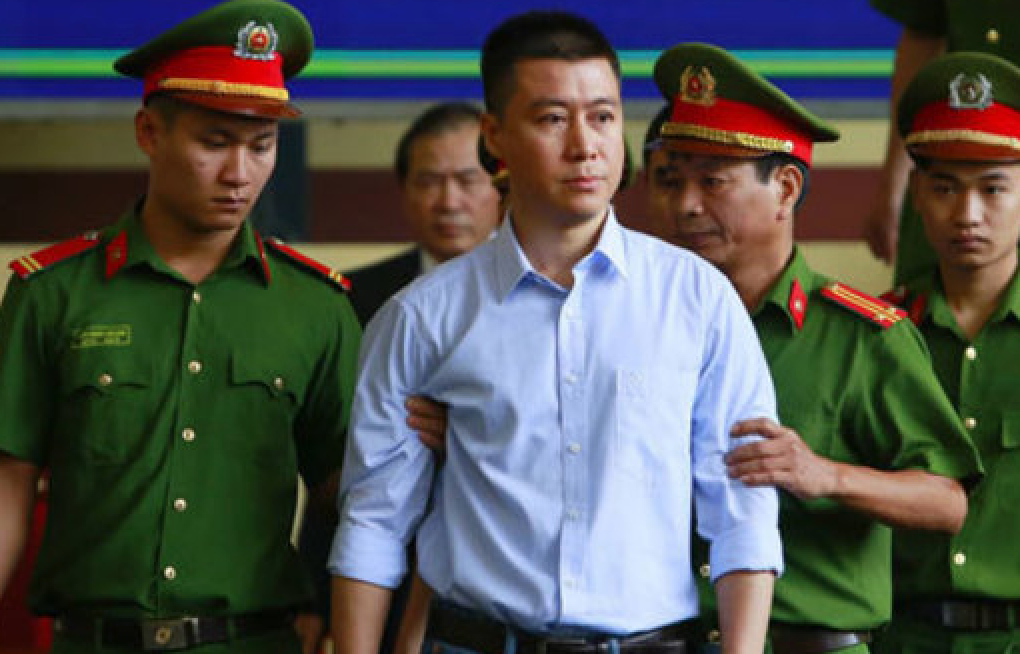
In 2015, after learning that Nguyen Van Duong’s CNC Company was a screen for C50, Phan Sao Nam (former Chair and Director of VTC Online) met Duong and proposed collaborating to distribute an online gambling software under the guise of the Rikvip card game.
This partnership allowed both Duong and Nam to rake in massive profits from organizing illegal gambling.
Earning big money, Nam transferred over VND236 billion to relatives for savings and real estate purchases, directed to withdraw VND50 billion to deposit at banks, contributed VND92 billion to companies, asked acquaintances to deposit VND485 billion in savings, stashed over VND146 billion in cash, and held dollars and gold worth over VND142 billion. He also bought 11 apartments worth over VND111 billion in others’ names.
He also transferred money to two individuals, who bought two apartments worth VND27 billion under their names, while he acquired two apartments worth over VND12 billion. His assets included $3.5 million deposited at Bank of Singapore, gold, and dollars worth hundreds of billions held by others.
Phan Sao Nam was sentenced to five years in prison for organizing gambling and money laundering, and forced to pay VND1,475 billion as a court-ordered obligation. By July 2022, he had paid over VND1,384 billion. Authorities later recovered nearly $2.7 million and SGD127,000 from his overseas accounts.
Another tycoon, Do Anh Dung, Chair of Tan Hoang Minh Group, spent over VND8,000 billion to mitigate case consequences. At the time of the case’s prosecution, the outstanding debt owed to 6,630 investors (victims) was over VND8,643 billion, the amount the defendants had misappropriated.
By May 2024, Do Anh Dung had fully settled the civil obligation of over VND8,000 billion. With the 2025 amnesty, the former Tan Hoang Minh Chair was granted early release and promptly resumed business activities.
Truong My Lan (Chair of Van Thinh Phat), facing multiple criminal charges, received a death sentence. Beyond criminal liability, she is obligated to compensate over VND30,092 billion to victims and related parties.
When asked how she would afford such compensation, her lawyer stated that as of March 24, 2025, over VND8,659 billion in cash had been transferred to the Enforcement Agency’s account and frozen accounts.
Over VND15,383 billion was the amount that individuals and organizations had to pay to Lan. Also, she had shares and real estate worth over VND10,000 billion seized. Another source for mitigation was the VND15,712 billion from the An Dong bond package repaid to six credit institutions.
The lawyer estimated that Lan would have over VND50,000 billion from various sources which could be used for compensation. The civil enforcement process is ongoing.
Most recently, tycoon Trinh Van Quyet’s wife, Le Thi Ngoc Diep, paid an additional VND1,400 billion, bringing his total compensation to over VND2,400 billion. Thus, before the appeal trial on June 17, Quyet fully mitigated the case’s consequences, a factor that could influence the upcoming appeal.
Lawyer Dang Van Cuong said there are very few criminal cases where the defendant voluntarily compensates for damages and remedies the consequences with such a large amount of money at the appeal stage. This is a new detail, which is significant for the resolution of the case.
Quyet’s compensation is one of the important factors for the appellate court to consider reducing the initial sentence. In cases involving property or economic crimes, compensation is a critical factor in determining penalties.
It reflects the defendant’s remorse and mitigates the crime’s consequences to some extent. Courts assess the defendant’s attitude, legal compliance, and the crime’s nature and impact to decide appropriate penalties, often leading to reduced sentences on appeal.
At the first trial, Trinh Van Quyet received an 18 year imprisonment for “fraudulent appropriation of property” and three years for “stock market manipulation,” totaling 21 years. According to Dang Van Cuong, this was a very severe sentence.
Previously, the appellate trial for Trinh Van Quyet and his accomplices was repeatedly postponed due to the former FLC Group Chair’s health issues. At the appellate hearing on March 25, Nguyen Trong Nghia, Quyet’s lawyer, stated that a medical consultation on March 14 showed Quyet suffered from grade 3 heart failure and multiple serious illnesses, posing a life-threatening condition. He was deemed unfit to attend court, leading to a request to postpone the trial.
According to Cuong, a defendant’s serious illness is a factor the trial panel may consider under Article 51 of the Criminal Code to reduce part of the penalty.
T. Nhung